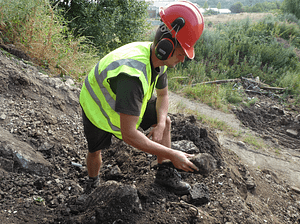Benefits Of A Soil Analysis On Your Property.
Soil analysis has become a valuable tool for farmers, gardeners, and property developers all over the world. Soil testing is a diagnostic tool for determining the nutrient profile and structure of the soil and is completed by measuring the chemical and physical attributes of the earth. So, what are the benefits of a soil analysis? 
Checks the soils’ pH range.
Most soils have a pH of 6 – 6.5. The reason it is beneficial to check this is because different plants thrive with different soil types. For example, Magnolias, Camellias and Ceanothus grow better in acidic soils where as Polemoniums, Lavender and Honeysuckle prefer alkaline conditions. By making sure that you plant the right plants for the type of soil present in your garden, you can ensure that they thrive going forward.
Controls unwanted pests and diseases.
Soils that have been struck with infestation usually have a nutrient imbalance in the earth. A soil analysis can help to determine what nutrients your soil lacks and what steps should you take to amend it. Once adjusted, pest problems should no longer be an issue.

Minimise costs on fertilizer.
As a soil test allows you to discover what nutrients are in your soil, you will not need to waste money on testing out many different types of fertilizer to make your crops thrive. Instead, you will know exactly which nutrients your plants need and can buy the right fertilizer, the first time.
When should soil tests be conducted?
A soil analysis can be completed at any time of year but is usually done before you start to plant any crops or plants. It is recommended that an analysis is carried out when the soil is dry.
If you’re in need of a soil analysis or any other soil services such as a pressure soil test or WAC testing, then feel free to contact us!
